The hip hop community and the music industry at large are still mourning the loss of Chris Lighty. Even though the media is reporting his death on Thursday as an apparent suicide, the details surrounding his demise are still unclear. What is apparent was Lighty’s prominence as an influential power broker who managed the careers of 50 Cent, LL Cool J, Busta Rhymes, Mariah Carey, Diddy and countless other superstars during his illustri ous career.
ous career.
Lighty was raised by a single mother in the Bronx River projects. His entry into the music business was carrying crates of vinyl records and running errands for DJ Red Alert. He later became a tour manager and DJ for the Jungle Brothers and established relationships with A Tribe Called Quest and De La Soul. After Lyor Cohen and Russell Simmons learned of his exceptional work ethic, he joined Rush Management in 1989 where he worked with Public Enemy, Eric B. & Rakim, and Big Daddy Kane. After Rush folded in 1993, Lighty joined Cohen at Def Jam Records while simultaneously starting Violator Management as he selected artists remaining from the Rush roster including Busta Rhymes and A Tribe Called Quest.
Violator Management became a talent agency giant that est ablished marketing opportunities for its clients through a nontraditional approach that was unheard of at the time. Under Lighty’s leadership, LL Cool J rapped in a 1997 GAP commercial and managed to cross-promote the Fubu clothing line that he often
ablished marketing opportunities for its clients through a nontraditional approach that was unheard of at the time. Under Lighty’s leadership, LL Cool J rapped in a 1997 GAP commercial and managed to cross-promote the Fubu clothing line that he often 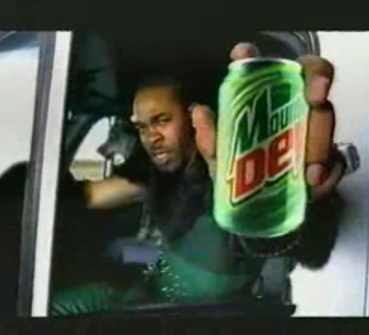
![]() endorsed by wearing their hat in the ad and even dropping a slick “for us, by us, on the low” reference that reiterated the company’s name. Lighty also went on to secure Mountain Dew ads for Busta Rhymes and a Sprite commercial for A Tribe called Quest. When Tribe’s lead MC, Q-Tip, considered going solo it was Lighty who not only encouraged the
endorsed by wearing their hat in the ad and even dropping a slick “for us, by us, on the low” reference that reiterated the company’s name. Lighty also went on to secure Mountain Dew ads for Busta Rhymes and a Sprite commercial for A Tribe called Quest. When Tribe’s lead MC, Q-Tip, considered going solo it was Lighty who not only encouraged the 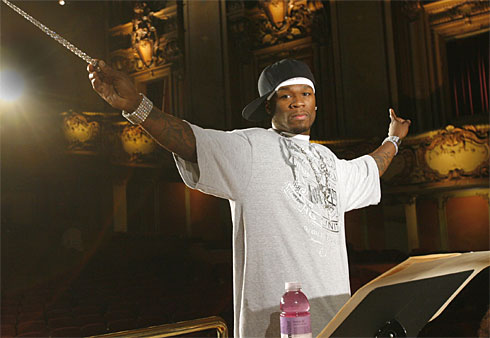 move but put together a Violator Records compilation that spawned his first single, “Vivrant Thing,” which reached the Top 10 on Billboard’s Hot Rap Singles and Hot R&B/Hip-Hop Singles & Tracks charts while the album debuted at No. 1 on Billboard’s Top R&B/Hip-Hop Albums chart.
move but put together a Violator Records compilation that spawned his first single, “Vivrant Thing,” which reached the Top 10 on Billboard’s Hot Rap Singles and Hot R&B/Hip-Hop Singles & Tracks charts while the album debuted at No. 1 on Billboard’s Top R&B/Hip-Hop Albums chart.
Last year, Lighty merged his company with Primary Wave Talent Management to form Primary Violator. Larry Mestel, founder and CEO of Primary Wave Music, said the venture would be aggressive in “providing services that are not being provided elsewhere.” Mestel was contacted to discuss the projects Lighty was working on prior to his passing as well as their vision for the newly formed alliance but declined to comment on the specifics of their strategy.
“We are extremely shocked and saddened by this tragic news,” said Mestel in an official statement released by Primary Wave Music on Friday. “Chris was a friend, business partner and most of all, an icon, role model and true legend of the music and entertainment industry. He will be missed by many and we send love and support to his family.”
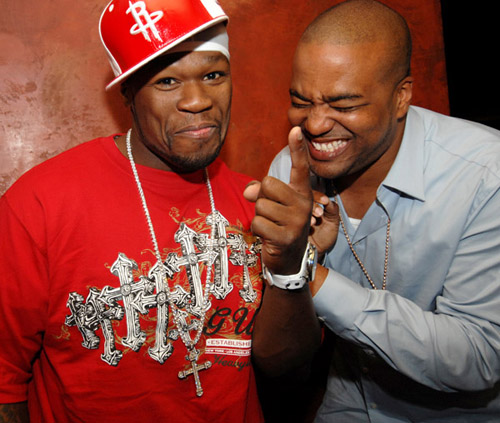
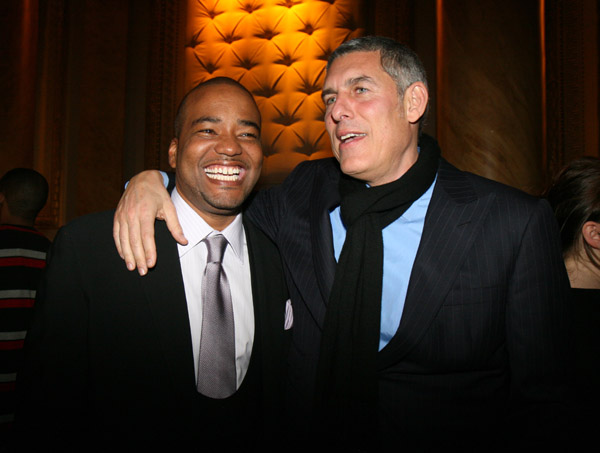
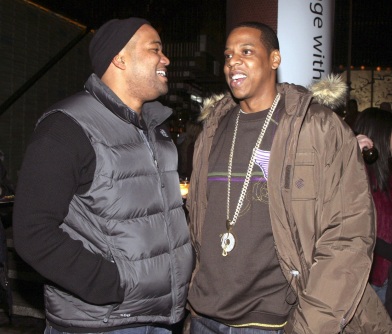
 Many people may consider Lighty’s crowning achievement as negotiating 50 Cent’s groundbreaking Vitaminwater deal because it paid the rapper a reported $100 million after his 10 percent stake in its parent company, Glaceau, was purchased when Coca-Cola acquired the company in 2007. However, that may not be Lighty’s most significant accomplishment. According to “Def Jam Recordings,” a biographical book by Bill Adler and Dan Charnas that explores the iconic rap label’s history, Lighty played a pivotal role in bringing the company profitability during a tough stretch in 1994. It was Lighty who signed West coast rapper Warren G to Def Jam and confronted Suge Knight when he was the CEO of Death Row Records and arguably the most feared man in the music business. It was Lighty who went to Knight’s office after the label head prevented Nate Dogg from attending Warren G’s “Regulate” video shoot (even though he was featured on the song) because he was upset at being unable to sign the rapper to his label first. Lighty changed Knight’s mind by allowing him to use the single for the “Above the Rim” soundtrack three months prior to Def Jam releasing Warren G’s “Regulate…G Funk Era” album. The single peaked at No. 2 on the Billboard 100 chart and the album sold more than 3 million records. Knight no longer had anything to complain about as the “Above the Rim” soundtrack went on to sell 2 million records.
Many people may consider Lighty’s crowning achievement as negotiating 50 Cent’s groundbreaking Vitaminwater deal because it paid the rapper a reported $100 million after his 10 percent stake in its parent company, Glaceau, was purchased when Coca-Cola acquired the company in 2007. However, that may not be Lighty’s most significant accomplishment. According to “Def Jam Recordings,” a biographical book by Bill Adler and Dan Charnas that explores the iconic rap label’s history, Lighty played a pivotal role in bringing the company profitability during a tough stretch in 1994. It was Lighty who signed West coast rapper Warren G to Def Jam and confronted Suge Knight when he was the CEO of Death Row Records and arguably the most feared man in the music business. It was Lighty who went to Knight’s office after the label head prevented Nate Dogg from attending Warren G’s “Regulate” video shoot (even though he was featured on the song) because he was upset at being unable to sign the rapper to his label first. Lighty changed Knight’s mind by allowing him to use the single for the “Above the Rim” soundtrack three months prior to Def Jam releasing Warren G’s “Regulate…G Funk Era” album. The single peaked at No. 2 on the Billboard 100 chart and the album sold more than 3 million records. Knight no longer had anything to complain about as the “Above the Rim” soundtrack went on to sell 2 million records.
In 1995, it was Chris Lighty who convinced LL Cool J that an unsigned female rapper named Foxy Brown needed to be featured on his “I Shot Ya (Remix)” alongside Fat Joe, Prodigy, and Keith Murray. He then lured Lyor Cohen to sign the 17-year old female emcee to Def Jam even though Cohen was reluctant to do so. Lighty later persuaded Jay-Z to write for Brown once it was discovered that songwriting was clearly not her strength. Once Cohen was aware that Jay-Z penned the “Get Me Home” hit for Brown along with other songs from her “Ill Na Na” debut it made him a valuable asset and led to a joint-venture agreement between Roc-A-Fella Records and Def Jam in 1996. Without Lighty’s push, we may have never heard those early Foxy Brown records or even Dr. Dre’s classic comeback song with Snoop Dogg, “Still D.R.E.,” which Jay-Z wrote in its entirety.
Lighty once joked that after Busta Rhymes released “Pass the Courvoisier, Part II” and it climbed up the Billboard charts in 2003 he regretted not brokering a deal with the cognac brand because he estimated that the company’s sales increased by 20 percent based on the song. In 2010, Lighty passed along a Sprite deal to Drake’s representatives worth $850,000 because he wanted to see another manager succeed. He also created Pleaselistentomydemo.com as a way for aspiring artists to submit their music online for $10 and have seasoned record executives provide him as well as the potential client with feedback. Lighty’s overall impact can be summed up in his own words.
“I’d rather sell 10 million records over 10 years than 10 million records once because over the 10 years I’ll make other things happen off of that 1 million records I sold every year,” said Lighty to Night Sessions TV in 2010. “I’ve seen a lot of people come and go in the game. I plan to be here until I decide I don’t want to be here anymore.”

